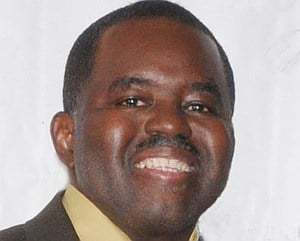There is a crisis in America in the Black community, because it seems no one cares that Black boys and young Black men are failing in school. They expect to fail, and they are only concerned with being professional basketball/football players, rap stars, or gangsters. Seventy percent of Black families are run by single women, and young brothers have no idea of how to be a man.
As Blacks in February celebrate Black History month, it is time to tell the truth about street-life and Black on Black violence that is claiming hundreds of thousands of young Black men’s lives in the community.
”Since 1980 to 2013, more than 260,000 Black men have been killed in America” says Mich Landrieu, Mayor of New Orleans. America has given up on Black boys and young Black men and the majority of them see no way out of their circumstances.
In 2017, Black boys and young men cannot read. This impacts them in everything they do, and their mothers are too busy working and paying bills to educate them.
A good friend of mine who has a college degree and a good job in Maryland, mentors a group of 20 young Black men every Tuesday from the community. After talking to them for five weeks about the importance of education, no one in the group had a report card with a GPA higher than 2.0. The young men thought it was funny, and it appeared that they were satisfied with their results.
In many major cities across the country such as Newark, Baltimore, Chicago, Detroit, New Orleans and Washington D.C., the schools are not working and there aren’t enough decent-paying jobs in the community. The unemployment rate is over 50% in most cities, and young Black men are killing each other because they can’t envision anything better for themselves.
“What you’re going to see is a huge governing failure on the part of our society. This country has the highest incarceration rate in the world, and Louisiana has the highest incarceration rate in the country. That’s failure” says Mayor Landrieu.
Within the Black community in every major city across the country, you will find the same pattern. 1 out of 3 Black men will go to prison, and 80% of murder victims are believed to have known their killer. Buying a gun is cheaper than buying a pair of sneakers, and too many young Black men have one.
In Chicago in 2016, the city leads the country with over 500 deaths, and this is directly related to drugs and gang street warfare. Black boys as young as 8 to 10 years old are running and selling guns and drugs. They have already decided how they plan to make their money, and no parent (mostly the woman) is going to stop them.
Black boys and young Black men are dying for lack of respect from others on the street, and they are out of control, but where are the solutions during Black History Month?
It is easy to blame institutional racism, poor neighborhoods, police brutality, the hip-hop culture, drugs, and guns, but systemic genocide is the fundamental reason so many Black boys and men are dying in America. The criminal justice system is the civil rights issue in 2017 in the Black community.
“Right now, Blacks make up 12% of the population but almost 60% of those doing time are drug related – and according to the Sentencing Project, these Black prisoners are serving almost as much time for their drug offenses as Whites are for actual violent crimes” says reporter Wilbert Cooper. 1.5 million prime-aged Black men are missing in America; they’re either behind bars or pushing up daisies.
There is a lost generation of young Black boys and young Black men in America, and Black History Month is a time to start the conversation. February is the only time America talks about Black people, so it is time to talk about “The Lost Generation.”
Young Black men are dying in the streets and/or jails/prisons, and there appears to be no hope. “The day you were born, there was a pine box and a prison cell built with your name on it” says reporter Wilbert Cooper.


